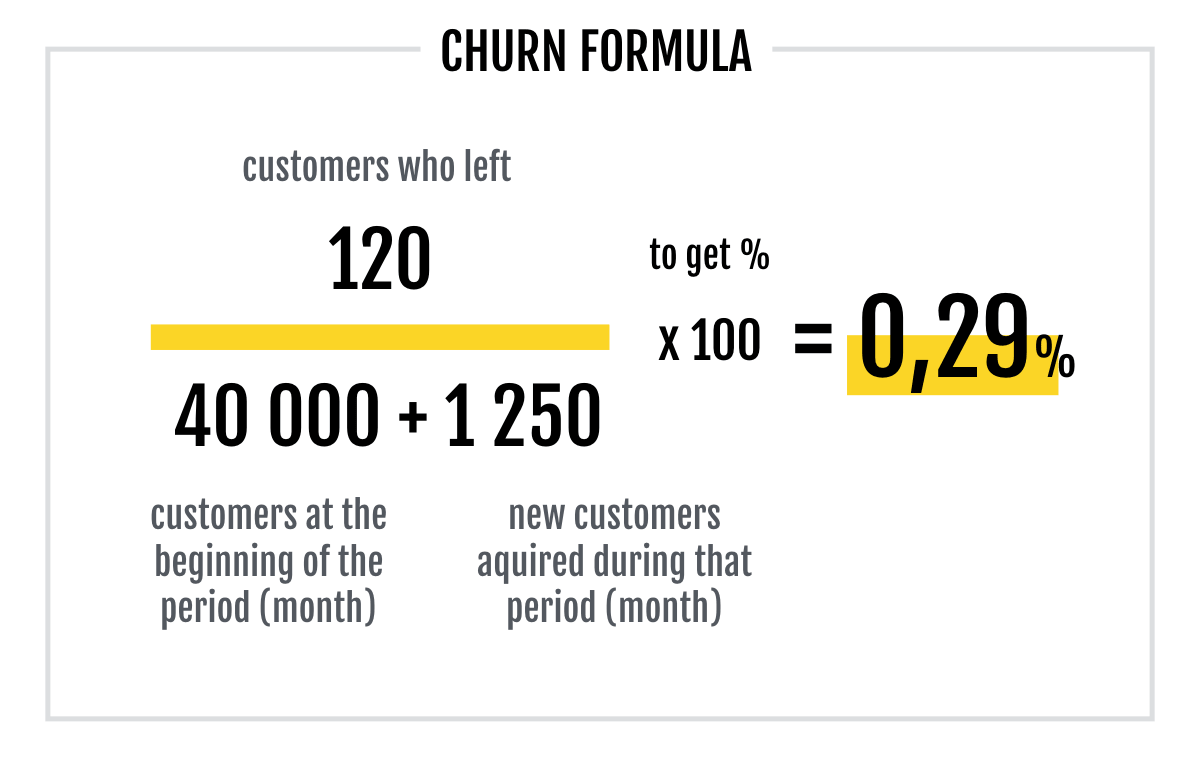Churn rate, also known as attrition rate, is a crucial metric for marketers that measures the percentage of customers who discontinue their engagement with a product, service, or subscription within a given time period. It is an essential indicator of customer satisfaction, brand loyalty, and the effectiveness of marketing strategies. A high churn rate signifies that customers are not satisfied with the product or service, or that competitors are offering better alternatives. By analysing and reducing churn rate, marketers can improve customer retention, enhance customer lifetime value, and ultimately increase revenue.
An example of churn rate
Here is an example of how it works:
Table of contents
Open Table of contents
How does churn rate work?
Churn rate works by measuring the percentage of customers who leave or discontinue using a product or service over a specific period of time. For marketers, this metric is crucial as it helps them understand the effectiveness of their customer retention strategies and identify areas for improvement. By analyzing the churn rate, marketers can gain insights into customer satisfaction, product or service quality, and overall brand loyalty. A high churn rate indicates that customers are not satisfied with the product or service, while a low churn rate suggests that customers are loyal and satisfied. This information can be used to make data-driven decisions to optimize marketing campaigns, improve customer experience, and ultimately, increase revenue.

Expert opinions and perspectives
Here are how some of the world’s best marketing and growth professionals think about churn rate.
-
“Churn is the one metric that determines the success of your subscription business.” - Lincoln Murphy, Customer Success Consultant
-
“The key to reducing churn is to focus on creating value for your customers, not just selling them a product.” - Neil Patel, Co-founder of Crazy Egg and KISSmetrics
-
“Churn rate is a business killer. If you can reduce churn, you’ll have a much better chance of building a sustainable, long-term business.” - Brian Balfour, Founder and CEO of Reforge
Questions to ask yourself
As a modern growth marketing or agile marketing professional, ask yourself the following questions with regard to churn rate:
-
What are the primary reasons customers are churning, and how can I address these issues to improve retention?
-
Are there specific customer segments or cohorts that have a higher churn rate, and what targeted strategies can I implement to reduce churn within these groups?
-
How does our churn rate compare to industry benchmarks, and what best practices can we adopt from successful competitors to reduce churn?
-
What are the key indicators or early warning signs of potential churn, and how can I proactively engage with at-risk customers to prevent them from leaving?
-
How can I leverage customer feedback and data analysis to continuously improve our product, service, and overall customer experience to reduce churn?
Additional reading
Here are some related articles and further reading around churn rate that you may find helpful.
See how this topic is trending on Google Trends here: https://trends.google.com/trends/explore?date=all&q=churn%20rate
More questions? Connect with me on LinkedIn or Twitter, or book a Growth Call.